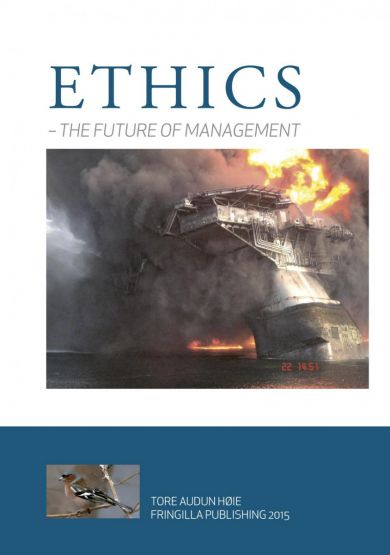- Format: Innbundet
- Antall sider: 366
- Språk: Engelsk
- Forlag/Utgiver: Fringilla
- Nivå: Voksen
- EAN: 9788269000504
- Kom i salg: 13. mai 2015
- Utgivelsesår: 2015
- Bidragsyter: Høie, Tore Audun (for)
- Utgave nr.: 1
- Emnekategori: Etikk og sosialt ansvar i næringslivet
500,-
Ethics in this book is based on Aristotle, but extended to cover quality, risk, creativity, social responsibility, governance and organisation ethics. This is in response to corruption, fraud, cheating, poor quality, tax evasion, lack of professionality, obsolete management, pollution and incredible incompetence. One basis is modern developments such as the standard ISO 26000 and guidelines for investors. Some organisations show the way, like the Red Cross with 97 million members, incorporating two religions. Advanced companies provide good product and healthy profits.
The book presents ethics as a new fundament for management, to tie the different parts of management together. Legitimacy is provided by ISO 26000 and other developments. ISO 26000 is stakeholder-oriented, providing a structure and a memory aid. 75 .initiatives target important areas of society concern, but is also a handy framework for management. One initiative is the Equator principles, used by many banks for risk management. The purpose is to avoid environmental and social risks, meaning that loans are not granted for unsuitable projects. Similarly, some investors dump companies with low social responsibility, regarding them as unsound.
Management stages, or paradigms, began with US mass production, where cost and efficiency were important. Japanese management was an improvement, including quality, competence, design, internal standards and cooperation. Service management is the third stage, with relationships, service components, safety, crisis management, standards, methodology and concepts like the turned pyramid, .moment of truth and service design. Ethical management incorporates the best from the other paradigms, adding stakeholders, vision, values, the environment, complexity, social responsibility, governance and sustainability. It seems likely that this management will survive and provide advantages to employees, customers, owners and society.


